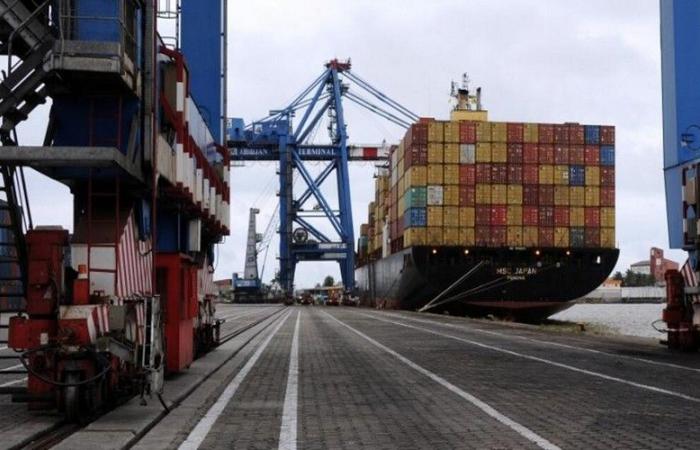
In Ivory Coast, the situation of the cargo ship Zimrida has attracted great attention since its arrival off the coast of Abidjan on December 30, 2024. The ship, which is carrying a cargo of 20,000 tonnes of ammonium nitrate, a potentially dangerous chemical , was placed under close surveillance by the Ivorian authorities. While a crucial meeting is to be held this Monday, January 6, 2025 to decide the fate of the ship and its cargo, concern is growing over the safety of this product, already infamous for its relationship with catastrophic explosions, such as that of the port of Beirut in August 2020.
The Zimrida route: a complex journey
The Zimrida, registered in Barbados, left the British port of Great Yarmouth on December 16, 2024, after taking on the cargo of ammonium nitrate. This product, used mainly as fertilizer, had been taken on board after a transhipment with another ship, the Ruby, which had suffered damage in the Norwegian Sea. The latter was originally carrying the cargo of 20,000 tonnes of ammonium nitrate, but a breakdown required a transfer to the Zimrida, which continued on to Ivory Coast.
Before reaching the port of Abidjan, the Zimrida called at several ports, including the Algerian port, and attempted to seek refuge in Norway before finally being accepted by the United Kingdom. However, the reputation of the product and the Russian provenance of the cargo have raised concerns, fueling many fantasies about the associated risks.
Ammonium nitrate: a risky product
Ammonium nitrate, although used primarily as a fertilizer, can become a highly explosive product if stored in poor conditions. This chemical compound is sensitive to high temperatures and can react violently, producing toxic gases, such as nitrogen oxide, if thermally degraded. Experts point out that inappropriate conditions can cause a spontaneous explosion, as was the case in Beirut in 2020, where more than 200 people lost their lives in an explosion linked to poor management of this product.
The Ivorian authorities, aware of these risks, are closely monitoring developments in the situation. Although the Zimrida’s cargo is believed to be ammonium nitrate intended for fertilizer production, authorities remain cautious. According to Jacky Bonnemain, director of the NGO Robin des Bois, there is currently “no sign of thermal degradation” of the cargo, unlike other similar cases observed in the past, notably in the North Sea and in the Bay of Biscay.
The Ivorian context and precedents
This situation is taking place in a particular context for Côte d’Ivoire, which remains marked by dramatic past events. The country still remembers the tragedy of the Probo Koala, a ship which dumped toxic waste in August 2006, causing dozens of deaths and causing real trauma in Abidjan. It is probably this recent past which fuels the fears of the authorities and local populations regarding the Zimrida cargo.
The ammonium nitrate carried by the Zimrida is intended for export to several countries, including Ivory Coast, where 3,000 tonnes of the cargo is to be unloaded. A decisive meeting between port authorities, Ivorian customs, the owner of the goods and the carrier is planned for Monday to determine whether this part of the cargo can be unloaded safely. Authorities are implementing strict monitoring to ensure that all safety measures are followed.
A controversial cargo
Ammonium nitrate is at the heart of much speculation, particularly because of its potential use in the manufacture of explosives. If the product transported by the Zimrida is intended for agriculture, previous incidents, notably that of Beirut, continue to raise concerns regarding the storage and transport of this product. The NGO Robin des Bois also recalled that the ammonium nitrate involved in the Beirut explosion was intended for the manufacture of explosives and had been stored in deplorable security conditions.
Management to be closely monitored
The situation with Zimrida and its cargo of ammonium nitrate highlights the risks associated with this chemical. While ammonium nitrate is commonly used as a fertilizer, its rigorous management is essential to avoid tragic incidents like that at the port of Beirut. As Ivory Coast prepares to make a crucial decision on the fate of the ship and its cargo, the vigilance of the Ivorian authorities will be decisive in guaranteeing the safety of the population and port infrastructure.
Moctar FICUU / VivAfrik





